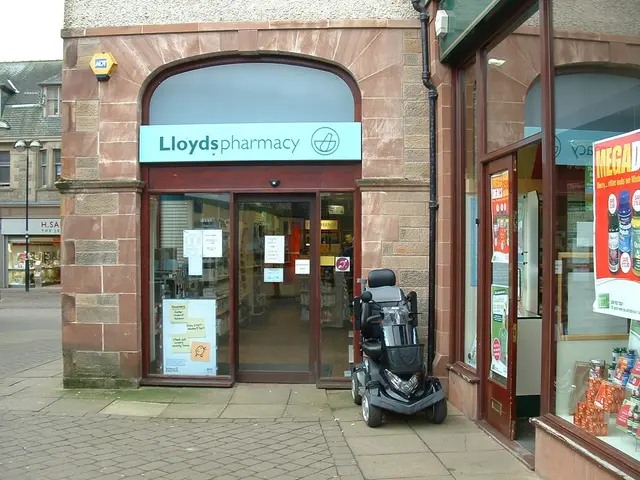Info on Nearby Corner Shops: Essential Facts You Should Be Aware Of - Village Convenience Stores: Unveiling the Local Shopping Options
Ever needed a quick run to the shops for some bread, milk, and eggs outside the city limits? You're in for a long drive. But worry not, self-service mini-supermarkets could be the solution you've been seeking!
Operating Mechanisms
These small shops operate automatically, minimizing the need for a permanent staff. Store staff do make appearances periodically for stocking and assisting customers, but most purchases are scanned and paid for by the customers themselves.
Geographical Distribution
In the Southwest, companies like Tante M and Hessian trading company Tegut run multiple units. With Tante M operating approximately 60 stores, primarily in Baden-Württemberg, and Teo-mini-markets scattered across the north, these stores are making their way into rural areas.
Shopping Hours
Tante M stores generally keep their doors open from 5:00 AM to 11:00 PM every day, covering the essential shopping hours, as per business manager Carsten Pletz. Despite being closed overnight for security reasons, a 24/7 mini-supermarket isn't necessarily a necessity in rural areas. Teo-markets, however, operate round-the-clock.
Legal Landscape
Owing to the shop opening law, stores cannot be opened on Sundays. However, municipalities have the power to grant permits, allowing mini-supermarkets to function with a level of tolerance. The Green Party in the state parliament considers this a "legal gray area" and proposes officially allowing the opening of such stores on Sundays in the shop opening law.
Customer Response
These stores have won over the hearts of the community, with surveys indicating that customers greatly appreciate the convenience and consider it a significant improvement to their daily lives. Tante M's business manager Carsten Pletz confirms this, pointing out the emotional attachment residents feel towards the shops.
Politicians also recognize the potential of mini-supermarkets to enhance the rural lifestyle. Andreas Schwarz, the parliamentary group leader of the Greens, believes that these stores make daily necessities more accessible, increasing the attractiveness of rural areas and improving the overall quality of life.
Cost Considerations
While mini-supermarkets offer convenience at a premium, with estimates suggesting a ten percent increase in prices compared to traditional grocery stores, many customers find this acceptable. In fact, customer surveys show that nearly 90 percent find the price levels acceptable.
Theft Prevention
Mini-supermarkets, despite being unattended for the most part, have been successful in deterring theft. Location plays a crucial role, with stores being situated in areas where there's minimal competition, fostering a strong community spirit among customers. Access controls, surveillance systems, and entrance scanning add an extra layer of security.
The Impact on Rural Life
Self-service mini-supermarkets present a unique set of advantages and challenges for rural areas. On one hand, they provide essential services with ease, catering to residents' needs round the clock. On the other hand, high prices and market competition could affect the local economy. The question of whether these benefits outweigh the drawbacks remains an area of ongoing debate.
- The community benefits from the convenience of self-service mini-supermarkets, as indicated by surveys showing customer appreciation and a significant improvement to their daily lives.
- Political figures recognize the potential of mini-supermarkets to enhance the rural lifestyle by making daily necessities more accessible, increasing the attractiveness of rural areas, and improving the overall quality of life.
- While prices at mini-supermarkets are estimated to be ten percent higher than in traditional grocery stores, nearly 90 percent of customers find the price levels acceptable.
- Mini-supermarkets, despite being unattended for the most part, have been successful in deterring theft through measures such as access controls, surveillance systems, and entrance scanning.
- The operation of self-service mini-supermarkets in rural areas presents a unique set of advantages and challenges, including the potential impact on the local economy through high prices and market competition.








